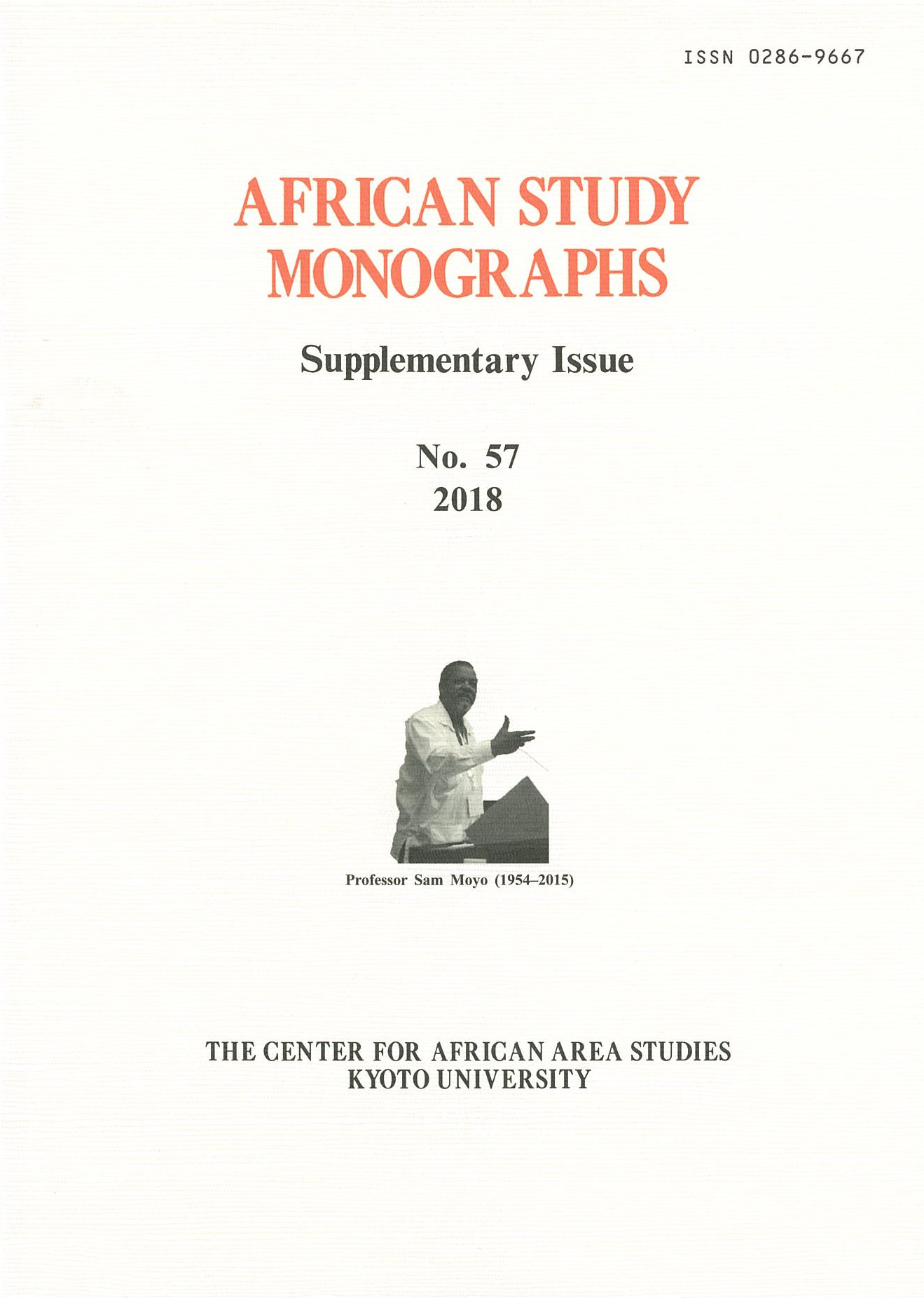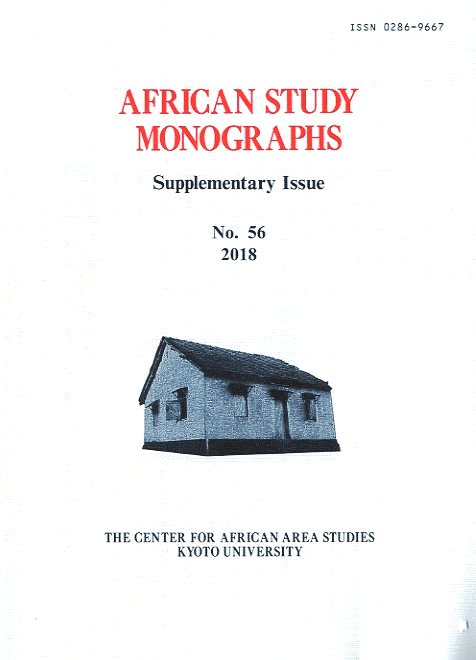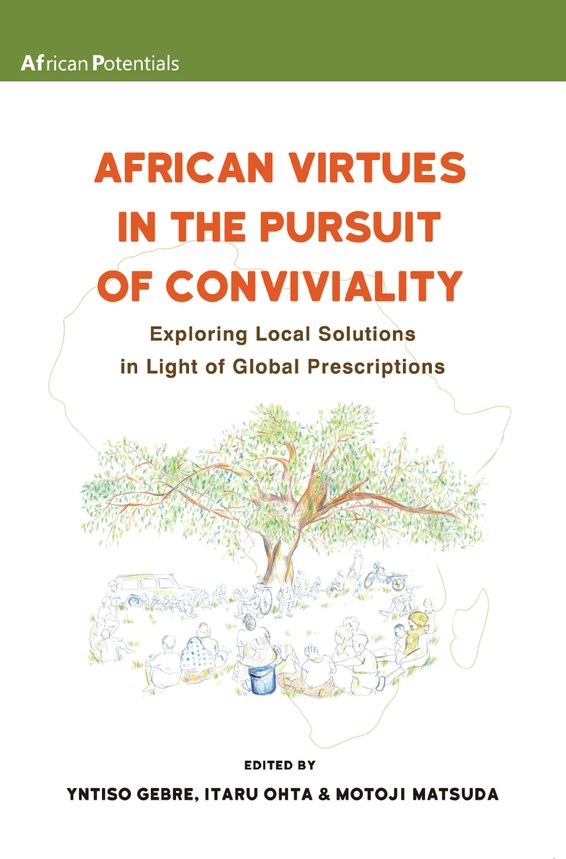Date and Time: January 28, 2017, Saturday, 13:30–17:00
Venue: Main Meeting Room, Inamori Memorial Foundation Building, Kyoto University
The Secretariat announced the study group meetings for the next fiscal year to the members, following the reports of the Kampala Forum by Motoji Matsuda and the Capetown Colloquium by Yoichi Mine.
Motoji Matsuda, the leader of the research project, clarified the objectives of this Third Plenary Meeting. He explained the following five questions, which had been addressed to each research team leader: 1) the method of contribution by the African societies to the issues the modern world is facing, 2) practice-based case examples and their concrete function in society, 3) the relationship between the study and global system and value judgment, 4) the negative aspect of African potential, and 5) the potential in unique epistemology and ontology.
Presentation 1: Report from Development and Livelihood Team Leader
Presenter: Motoki Takahashi (Kyoto University)
First, from the development and livelihood team, the presenter emphasized the importance of focusing not only on individual capability but also on the environment and system, which enables individuals to utilize it. People live in a given social environment and systems (i.e., common understanding of individual choice and behavior), and the development process of common understanding may vary depending on the society. At this point, the nature of African potential should be different from the potential of the others, and African potential may also encapsulate diversity within itself. Based on this, the presenter stated that the development and livelihood team could position social connections, such as reciprocity, re-distribution, and mutual help, as a presence that is related to development in the African context.
Presentation 2: Report from Environment and Ecology Team Leader
Presenter: Norio Meguro (Hiroshima City University)
The presenter first raised two points following the African Potential Series Phase One: positioning Africa as a region that has been understood as steresis; positioning African potential as a criticism of globally dominant knowledge, philosophy, or practices that understand Africa as privation. Based on understanding of these points, the Environment and Ecology Team regarded three dogmas on the relationship between people and nature in Africa as the background rather than as the subject of discussion. Then, the team suggested taking the neo-liberal perspective on environmental governance, which offers a multi-tiered, conventional, and conformist mechanism, for critical consideration.
Presentation 3: Report from Nation and Citizen Team Leader
Presenter 3: Mitsugu Endo (University of Tokyo)
The presenter introduced discussion points raised during Phase One and “Volume Two of the African Potential Series”, and suggested discussing African potential as a viewpoint to reconsider the African region as a whole rather than focusing on refining the definition of African potential. That is, to invoke the points raised by Brubaker and clarify the process by which everyday actions that appear meaningless would actually function, as well as to understand the process in which such rationale functions. In Africa, there are cases where brilliant human resources and survival strategies developed through African struggles exercise their excellence. In addition, there is extraversion, which transforms the external environment into a major resource through political centralization and the economic accumulation process. The presenter concluded that these moves sometimes conflict with global norms or function negatively.
Presentation 4: Report from Conflict and Coexistence Team Leader
Presenter: Masahiko Ochiai (Ryukoku University)
The presenter suggested refraining from directly questioning what African potential is or labeling past research outcomes as African potential, and presented the concept of microscopic–macroscopic vision to spin the African potential. For example, as Prof. Nyamhjoh (Capetown University) discussed African potential by using conviviality and incompleteness, discussing African potential as a concept from the perspective of humans as one of the mechanisms of microscopic–macroscopic vision. The Conflict and Coexistence Team is largely comprised of researchers specializing in anthropology and political science. In order to produce a research outcome as a team, the team leader and each member should focus on individuals (microscope) and such pain to change/to be changed may contribute to the macroscopic vision of the African potential to solve issues faced by today’s world.
Presentation 5: Report from Language and Literature Team Leader
Presenter: Keiko Takeshita (Osaka University)
The presenter first discussed the language situation, where multi-lingualism respecting individuals fluent in more than two languages has been created as a result of Africa being brought into nationhood, and that this language situation, which is seen as ideal by Europeans, can become the African language potential. Second, as the literature potential, she discussed writers’ attitudes to writing with ingenuity even in a challenging environment and to continue presenting them through the “literature of being written” and publication in the West. She also discussed the need for researchers to record these potentials, present externally on the findings, and feed-back the response to the locals, as well as the need for critical discussion on the concept of African potential, which could sound condescending.
Presentation 6: Report from Education and Society Team Leader
Presenter: Shoko Yamada (Nagoya University)
The presenter first discussed that education and learning are the themes related to many disciplines, and are not limited only to education, but also relate to anthropology, economics, political science, literature, and linguistics. She discussed that education is not a value-neutral concept, and that an education system has the function of creating or reproducing classes regardless of the intention, and has aspects that support existing social structure. The Education and Society Team is comprised of experts in education and anthropology and attempts to identify African potential by exploring the relationship between school knowledge and traditional knowledge, and spoken knowledge and acted knowledge. Through the attempt, the team seeks the way education can be by separating knowledge from structure.
Presentation 7: Report from Gender and Sexuality Team Leader
Presenter: Wakana Shiino (Tokyo University of Foreign Studies)
First, the presenter introduced the “compact house” project in a slum in Nairobi and the practices of a Kenyan architect who designs urban livelihood from the viewpoint of a resident. Then, she suggested that the team should advance the research with collaboration not only with African researchers but also with practitioners, as the gap between academism and common people is wide in Africa. Also, she suggested that in order to understand the efforts by African women in various social changes as African potential, it is necessary to locate it in a wider context by including such topics as the urban–rural relationship or what African urbanization is. She also suggested that the gender and/or sexuality of the researcher should be treated as objects of observation.
Created by Shuichi Oyama, Misa Hiraono-Nomoto, and Hitomi Kirikoshi



